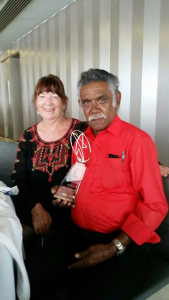November
How Australia’s Adult and Community Education Providers Support the Growth of a Quality Trained Aged Care Workforce, presentation to Commonwealth Home Support Program (CHSP) Conference, 23 November 2021, by Evelyn Goodwin & Dr Don Perlgut – Link to presentation
October
VET Providers and the Aged Care Workforce, presentation to Macquarie University Aged Care Policy Forum, 26 October 2021, by Dr Don Perlgut
Vulnerable and Disadvantaged Students of NSW Adult and Community Education Providers: Analysis of 2020 Data – Australian VET Fact Sheet 2 – Link to report
September
Supporting pathways in learning and life: Non-accredited training within the New South Wales - Adult and Community Education (ACE) Program, prepared by Dr Jim Cloutman, Riverina Community College – Link to report
Australian VET Students 2020 Fact Sheet 1 – Link to report
July
ACE Providers and Online Learning: Observations and Survey Insights, summary of CCA research by Evelyn Goodwin and Dr Don Perlgut, NCVER “No Frills” Conference, 7 July 2021 – Link to presentation
Submission to the National Skills Commission Care Workforce Labour Market Study, 6 July 2021
June
CCA National ACE Summit Foundation Skills Resolutions FINAL 29 June 2021 – Link to Resolutions
Statement of support for national COVID-19 vaccination campaign, 22 June 2021 – Link to Statement
Statement opposing the expansion of VET Student Loans to Certificate III level, June 2021 – Link to Statement
April
Upper Hunter By-Election Background Briefing for Candidates, 28 April 2021 – Link to Briefing
March
CCA Submission to Labor on National VET Policy, 25 March 2021 – Link to submission
Submission to the Inquiry into Adult Literacy and its Importance – Commonwealth Parliament Standing Committee on Employment, Education and Training, 8 March 2021 – Link to submission
February
Pre-Budget Submission to the NSW Government: Infrastructure Maintenance Funding for NSW Adult and Community Education Providers, 12 February 2021 – Link to submission





 Western Sydney is Australia’s third largest economy, after Sydney and Melbourne central business districts. At least 11 current CCA members operate wholly or partially in Western Sydney. With the assistance of the NSW Department of Industry, CCA
Western Sydney is Australia’s third largest economy, after Sydney and Melbourne central business districts. At least 11 current CCA members operate wholly or partially in Western Sydney. With the assistance of the NSW Department of Industry, CCA 
